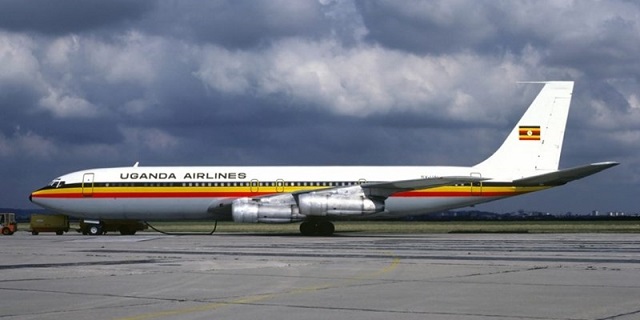
Will government enterprises that failed under the 1990s inefficiency fare any better with current corruption?
Kampala, Uganda | RONALD MUSOKE | When Uganda’s newly acquired two Bombardier CRJ900 aircraft arrived in the country on April 23, there was excitement.
‘Historic occasion,’ proclaimed the newspapers. Amidst the excitement, however, was some apprehension.
The planes are part of a quartet that the government acquired recently in a bid to revive the country’s national carrier, Uganda Airlines a.k.a The Flying Crane, which was dissolved in the 1990s frenzy to get government out of business. It was all part of policies imposed by the World Bank and the International Monetary Fund (IMF).
So the old Uganda Airlines which had been flying the black-yellow-red flag since 1976 was gobbled up in 2001 by President Museveni’s government.
Up to 140 parastatals were put up for either privatization or dissolution, according to Jim Mugunga, the spokesman of the Ministry of Finance which set up a Privatization Unit. By 2018 only 20 enterprises remained.
Among the other prominent businesses sold were Uganda Bus Company, Uganda Commercial Bank, Uganda Dairy Corporation, Uganda Grain Milling Company, Uganda Tobacco Corporation, the Coffee Marketing Board, Lint Marketing Board, several sugar factories, Uganda Hotels, Nytil Jinja Textiles, Uganda Conference Centre, Nile Mansions, and Apollo Hotel. Others like Uganda Electricity Board, Uganda Railways Corporation, and Uganda Posts and Telecommunication Corporation were chomped into tinier entities and privatized in bits.
At the time, the IMF/World Bank and the government argued that public parastatals needed to be privatized or disbanded because they were inefficient and an unnecessary burden on taxpayers as they needed constant injection of new money.
But when Museveni received the new planes, he assured Ugandans that the new national flag carrier will be a successful venture this time round.
“I was among the undertakers of the funeral of the old airlines. Here I am among the midwifery delivering the new baby,” said President Yoweri Museveni who was on hand to receive them at the old airport in Entebbe.
Even current IMF Country Representative Clara Mira agrees with the return of government into doing business directly.
“Things have changed very significantly since the late 1980s,” she told The Independent on May 8, “there are very many different ways of doing things; the challenges that we were seeing back then are not necessarily the same now.”
No business plans
In reality, many of the new enterprises the government is venturing into do not have viable business plans. Instead of bringing money into the government’s coffers, they are being set up to take taxpayers money.
The long list includes projects being promoted as nationalist enterprises designed to restore national pride and cut costs spent on catering for the international travel and medical needs of the country’s political elite.
Some of the projects the government is pushing are shrouded in allegations of corruption and selfish interests. The government’s decision to issue promissory notes worth US$379.7 million (over Shs 1.4 trillion) to facilitate an elusive Italian investor to construct the International Specialized Hospital at Lubowa has been criticized.
The new Uganda Airlines has also already run into trouble with Parliament oversight for attempting to operate without a substantive board of directors and self-ground handling facilities. Such incidents indicate that where the old parastatals failed mainly because of inefficiency, the new ones being created could fail because of runaway corruption. Most commentators are resigned to not seeing any profits from the new parastatals.
“Parastatals like Uganda Airlines are not there for profit but they are there for other reasons like national pride and job creation,” says Isaac Shinyekwa, a research fellow at Makerere University’s Economic Policy Research Centre (EPRC).
Shinyekwa told The Independent that when these public enterprises were created in the 1960s across Africa following independence, they were meant not only to spur economic development; they were also supposed to boost employment opportunities and distribute incomes.
Ramathan Ggoobi, a senior lecturer of economics at Makerere University Business School (MUBS) agrees with Shinyekwa.
“The government is trying to shift away from the neo-liberal thinking which has led to the challenges many African governments have been grappling with; including what many economists say is ‘jobless growth’.”
 The Independent Uganda: You get the Truth we Pay the Price
The Independent Uganda: You get the Truth we Pay the Price




Well done the midwifery, i hope flight charges will be rather less on these bombadiers to ugandan nationals than on other planes. It should not end on national prestige while the nationals are enjoying expensive flights even after having own vessels. Imagine paying same charges travelling on a family bus as you’d on a psv. This will enable us of low status to make international flights for treatment, business, study, etc.